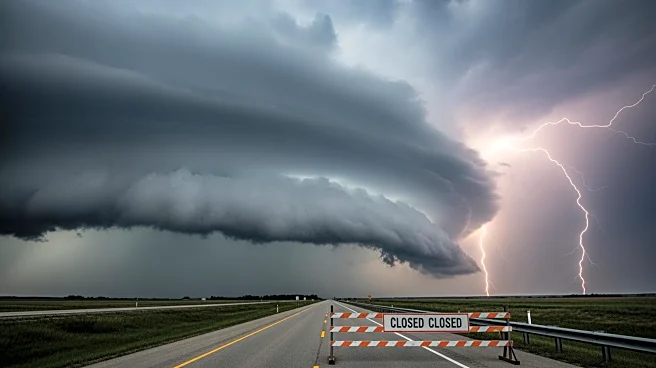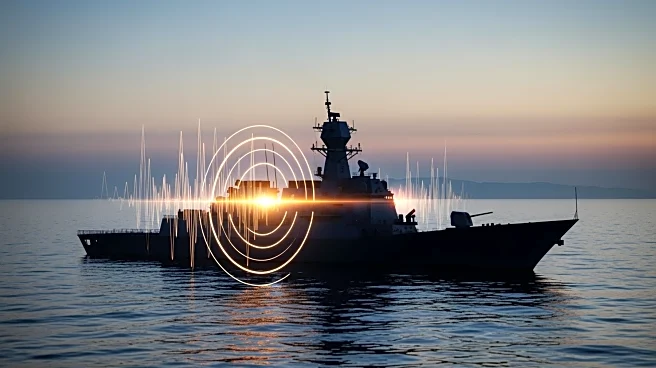What's Happening?
Two journalists, Olena Hubanova and Yevhen Karmazin, were killed by a Russian drone strike while reporting near the frontlines in the Donetsk region of Ukraine. The incident occurred when a Russian Lancet drone hit their vehicle in Kramatorsk, approximately
12 miles from the front line. The journalists were known for their coverage of the ongoing conflict in the region, which has been marked by intense fighting as Russian forces continue their efforts to control the area. The deaths were confirmed by Donetsk region Governor Vadym Filashkin, who praised the journalists for their dedication to reporting on the war and its impacts. The attack highlights the increasing dangers faced by journalists in conflict zones, with at least 135 media workers killed since the start of the Russian invasion in February 2022.
Why It's Important?
The deaths of Hubanova and Karmazin underscore the perilous conditions for journalists covering the conflict in Ukraine. Their work was crucial in documenting the realities of the war, including Russian military actions and their effects on civilians. The targeting of journalists is seen as a strategy to suppress independent reporting on the conflict, which has significant implications for press freedom and the flow of information. The incident also draws attention to the broader human cost of the conflict, affecting not only combatants but also those who strive to report the truth. The international community may view this as a violation of press freedom and could lead to increased calls for accountability and protection for journalists in war zones.
What's Next?
The Ukrainian government and international organizations are likely to continue advocating for the safety of journalists and may push for stronger measures to protect media workers in conflict areas. There could be increased diplomatic pressure on Russia to address the targeting of journalists and to ensure accountability for such actions. Additionally, media organizations may implement more stringent safety protocols for their correspondents operating in high-risk environments. The incident may also prompt discussions on the role of international bodies in safeguarding press freedom during conflicts.
Beyond the Headlines
The targeting of journalists in conflict zones raises ethical and legal questions about the protection of non-combatants in war. It also highlights the critical role of the media in providing transparency and accountability in conflict situations. The loss of journalists like Hubanova and Karmazin is a reminder of the sacrifices made by media professionals to bring the truth to light, often at great personal risk. This incident may lead to renewed efforts to strengthen international laws and conventions aimed at protecting journalists and ensuring their ability to report freely and safely.















